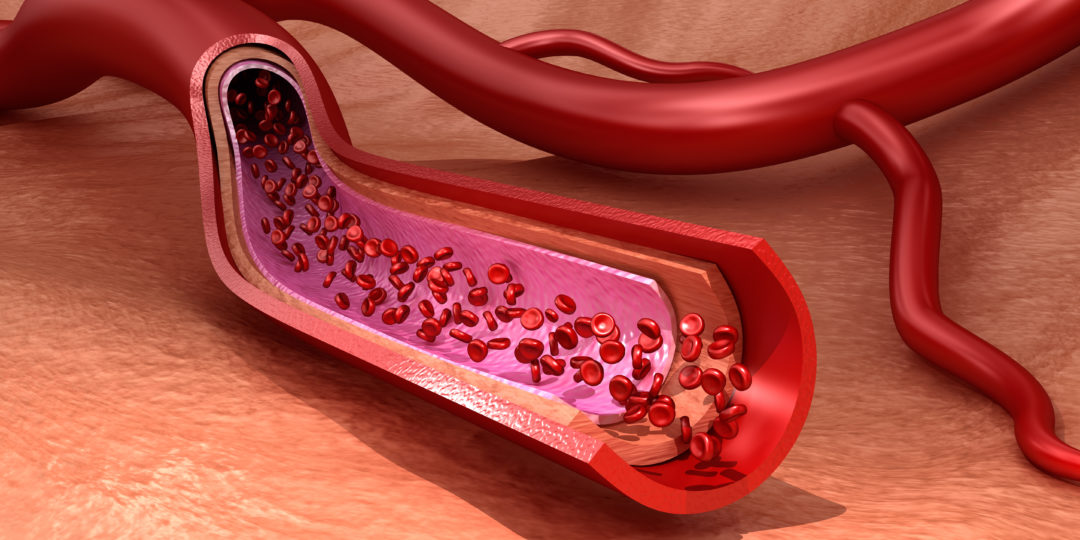|
We have complicated lives by simplifying lifestyles. Walking has become only an exercise and shopping has become mostly Internet-based. Curtain blinds, cooling sheets and air-conditioners invoke the pleasures of staying inside, advancements help us get things delivered to the doorstep-right from groceries and meals to beauty services and yoga classes. There exists not much need to meet Mr. Sunshine and say hello to the glowing sun that helps in producing vitamin D endogenously in the skin upon exposure to its rays. Besides, we can count the meagre number of foods that are excellent sources of this vitamin. All these make most of us deficient in vitamin D which opens the doors to multiple complications and problems in life. This is no exaggeration, but we see teens and young adults having negligible amounts of vitamin D in their body thereby suffering from joint problems and lack of energy.
The effect of vitamin D in bone health and calcium homeostasis is widely known- hypovitaminosis D is a major contributor of osteoporosis owing to failure of calcium absorption, secondary hyperparathyroidism and increased bone resorption. But now, we see vitamin D being increasingly linked to other health conditions such as obesity, cardiovascular disease, type 2 diabetes, cognitive effects, hypertension, myocardial infarction, cardiovascular death and total mortality rates. But is vitamin D linked with endothelial function? Vitamin D and Endothelial Function The endothelium once thought of simply having no functionality beyond allowing water and electrolytes permeability has become one of the most important endocrine organs. Vascular endothelial cells are found throughout the circulatory system responsible for fluid filtration in the glomeruli of the kidneys, homeostasis and neutrophil recruitment. Endothelial cell response is involved in various disease processes such as atherosclerosis, hypertension, pulmonary hypertension, sepsis and inflammatory syndrome. All these diseases are linked to endothelial injury, dysfunction and activation. Endothelial dysfunction is an early event in cardiovascular disease that has now become simpler to diagnose. Earlier, an invasive procedure was used where artery catheterization was necessary to assess endothelial dependent vasodilation. It is characterized by a shift in the actions of the endothelium toward reduced vasodilation, a proinflammatory state and prothrombic properties. Normally, the endothelium helps in regulating blood clotting, immune response, controls volume of fluids and electrolytes that pass from blood to the tissues and produces dilation or constriction of blood vessels. But with the presence of endothelial dysfunction the ability to perform one or more of these functions is affected. It’s also been believed that endothelial dysfunction plays a prominent role in laying the foundation for atherosclerosis, vascular leakage, infectious diseases and stroke and is mainly caused due to diabetes, metabolic syndrome, hypertension, smoking and sedentariness. Vitamin D has been linked with cardioprotective properties especially through its action on the endothelium. But the mechanism in which vitamin D might affect atherosclerotic process has not been completely understood. It might be due to increased nitric oxide (NO) production, reduced oxidative stress, decreased interleukin 6 (IL-6) expression or vascular cell adhesion molecules (VCAM) and intracellular adhesion molecule (ICAM). Vascular expression of NF-κB was more in individuals with vitamin D deficiency and endothelial expression of IL-6 was also higher in vitamin D deficient patients. Still, the effects of vitamin D supplement consumption on endothelial function is not yet clear. A meta-analysis on the impact of vitamin D supplement on endothelial function is discussed below: Meta-analysis of Vitamin D Supplement on Endothelial Function Preferred reporting items for systematic reviews and meta-analysis (PRISMA) guidelines were used and multiple databases include PUBMED were searched. While the search came up with 213 citations finally only 12 studies were eligible for inclusion in the meta-analysis. Each of the studies had between 34 and 114 participants, two studies had only female participants and other studies had between 14% and 84.1% women, mean age of participants was between 29 and 67 years and each of the studies included various vitamin D supplement doses. Study findings suggest that vitamin D supplementation might improve vascular function. A double-blind placebo study on 34 patients showed that a single dose of 100000 IU vitamin D2 supplement versus placebo increased flow-mediated dilation (FMD) in 8 weeks of follow-up. Another study examining the effects of vitamin D3 (3,00,000 IU) supplements for 3 months in vitamin D-deficient individuals also showed an increase in FMD levels. Another study that administered two different levels of vitamin D (1,00,000 IU and 2,00,000 IU) and placebo in 61 patients at 8 and 16 weeks showed no difference in FMD for the vitamin D group. Researchers have discovered vitamin D receptors in several cell types including vascular smooth muscle cells, endothelial cells and cardiac myocytes. Vitamin D synthesis by endothelial cells helps in regulating impact of inflammatory cytokines on the vasculature and studies do support the fact that vitamin D supplementation can have a positive effect on FMD and reduce risk of cardiovascular disease. Vitamin D’s Impact on Endothelial Dysfunction on Patients with Chronic Kidney Disease Chronic kidney disease (CKD) affects almost 10-15% of population impairing their health and economy of both, the patient and the society. The tricky point here is that CKD doesn’t result in death due to renal failure but most of the times due to cardiovascular events. Many CKD patients usually suffer from vascular disease and endothelial dysfunction from early stages which is followed up by marked vascular stiffening and arterial calcification. There have also been concerns that vitamin D compounds might cause deterioration of renal function but we don’t have much studies on vitamin D’s effect on CKD patients. A meta-analysis was conducted as per PRISMA guidelines and randomized control trials were included. Patients with CKD given vitamin D supplements were the intervention group and the placebo group included those who received no treatment. Outcomes were restricted to flow mediated vasodilation (FMD). FMD is mainly a measure of the capacity of the endothelial cells to produce nitric oxide (NO); it is a measure of function and not structure which makes it an early sign of vascular disease and a predictor of cardiovascular risk. Database search using specific search criteria resulted in a total of 1744 articles and after further screening only 14 articles were selected for full review of which 4 studies met full inclusion criteria. Each of the studies had between 24 and 120 participants and study duration was between 12 and 16 weeks. All the patients were between 44 and 65 years of age and in stage 3 or 4 of CKD. A total of five studies with 305 participants were evaluated and none of them showed difference in FMD measures at baseline between the intervention and the placebo group. Chitalia et al showed positive effects of dispensing vitamin D (3,00,000 IU) given as two doses at the beginning and at 8 weeks during a 16-week trial; Kendrick et al compared cholecalciferol 2000 IU with calcitriol 0.5 μg daily for a period of 6 months but could not detect any changes in FMD. Favorable effects were seen in both, fixed and random model studies, supporting the fact that vitamin D is advantageous on endothelial function. Also, maximum benefits were seen on younger patients as they were mostly in the earlier stages of the disease. Effect of Vitamin D on Endothelial Function: Placebo-controlled Trial We do very well know that overweight and obesity are serious risk factors for development of hypertension and CVD apart from vitamin D deficiency. Also, excess fat increases the risk of vitamin D deficiency and is also associated with endothelial dysfunction, a precursor to hypertension. So, a randomized placebo-controlled trial was conducted to determine the effect of vitamin D supplementation on endothelial function on obese/overweight individuals with vitamin D deficiency. Though a total of 489 individuals were initially screened only 93 of them were finally included-46 received ergocalciferol and 47 received placebo. But finally only 84 participants (43 assigned to ergocalciferol and 41 assigned to placebo) completed the study whose mean age was 37 years and mean BMI was 33.9. Results showed that:
The various studies and meta-analysis show that the evidences supporting the effect of vitamin D on endothelial function is conflicting. Yet we are sure that a majority of the population suffers from vitamin D deficiency which needs to be addressed. Hence, make way for some sunshine in your life to make your day brighter and your health better. References The Impact of Vitamin D Supplement Intake on Vascular Endothelial Function: A Systematic Review & Meta-analysis of Randomized Control Trials: https://foodandnutritionresearch.net/index.php/fnr/article/view/1145/4405 Treating Endothelial Dysfunction with vitamin D in Chronic Kidney Disease: A Meta-analysis: https://www.ncbi.nlm.nih.gov/pmc/articles/PMC6156877/ Effect of Vitamin D on Endothelial Function: https://academic.oup.com/ajh/article/30/2/124/2525927 Comments are closed.
|
AVOID FRAUD. EAT SMART+91 7846 800 800
|
- Home
- Written Testimonials
- Consult
- Clinics
- Blogs
-
Diet & Nutrition
- Diabetes Reversal
- IVF IUI not needed for PCOS PCOD Infertility
-
Medical Nutrition
>
-
Disease & Conditions
>
- Infertility | PCOS
- Diabetes Mellitus
- Cholesterol
- Hypothyroid
- Kidney Problems
- Hypertension
- Cardiovascular Diseases
- Liver Diseases
- Gastro intestinal disorder
- Cancer
- Metabolic Disorders
- Orthopedic Disorders
- Eating Disorders
- Dietary Recall
- Weight Record Filled By Clients
- Online Payment Transaction Details
- Online Clients Weight Check Form
- Our Program Package Service Charges
- Weight Record 2017 Clients
- Measurements sent by Clients
- Terms & Conditions Of Payment
- Thanks. Your Form is Submitted
- Video Testimonials
- Lifestyle & Wellness
- Lifestyle & Wellness Blog
- Allergy & Intolerance
- Weight Loss / Gain
- Weight Loss / Slimming Blog
-
Disease & Conditions
>
- Life Cycle Nutrition >
- Sports Nutrition >
- Integrity in Nutrition
- Knowledge Centre
© COPYRIGHT 2022. ALL RIGHTS RESERVED. FRST HEALTHCARE PVT LTD.
Dr. Nafeesa Imteyaz of First Eat Right clinic, is the Best Dietitian Nutritionist in Bangalore. Best Dietitian Nutritionist in Pune. Best Dietitian Nutritionist in Hyderabad. Best Dietitian Nutritionist in Chennai. Best Dietitian Nutritionist in Mumbai. Best Dietitian Nutritionist in Delhi. Best Dietitian Nutritionist in Kolkata.




